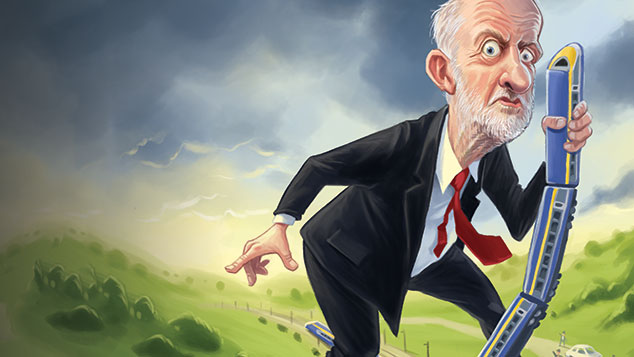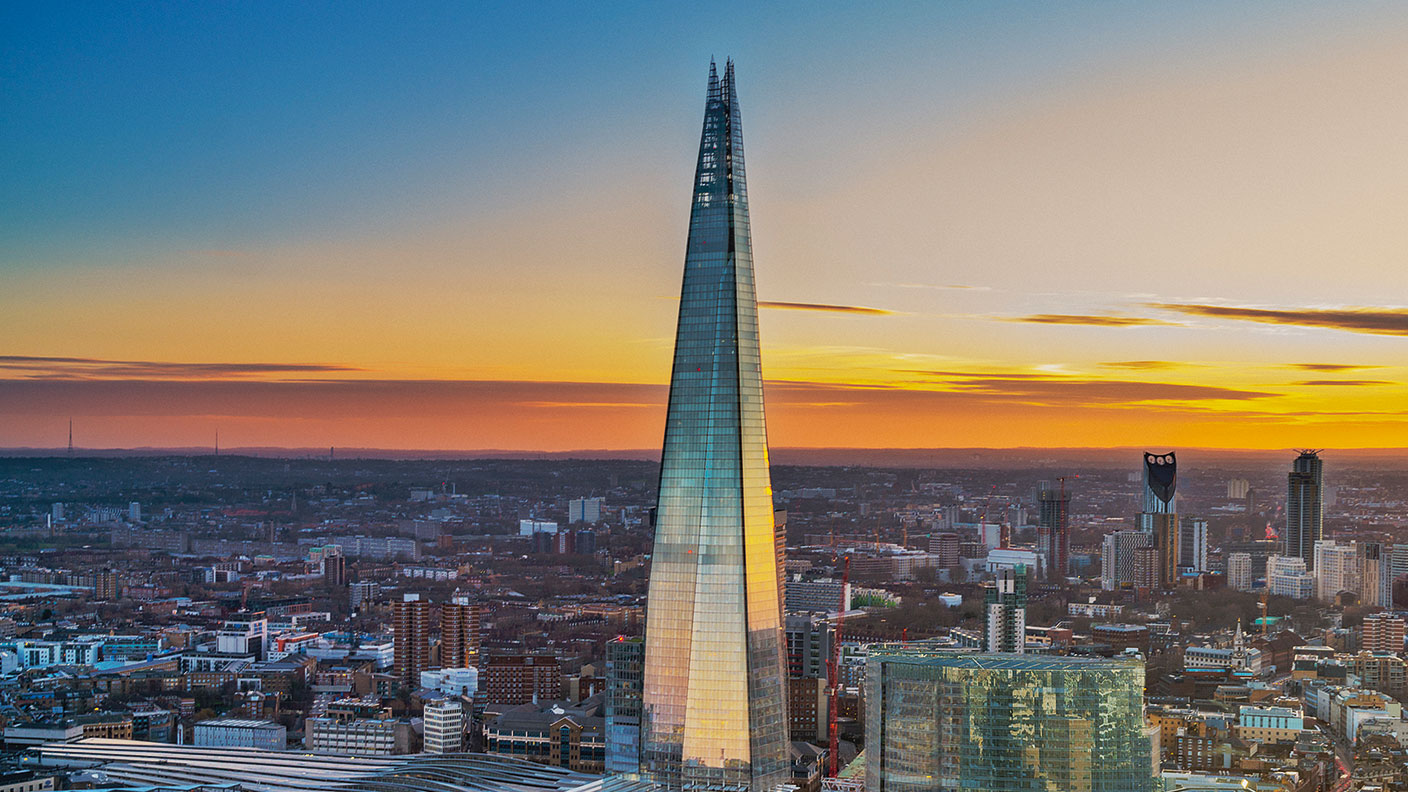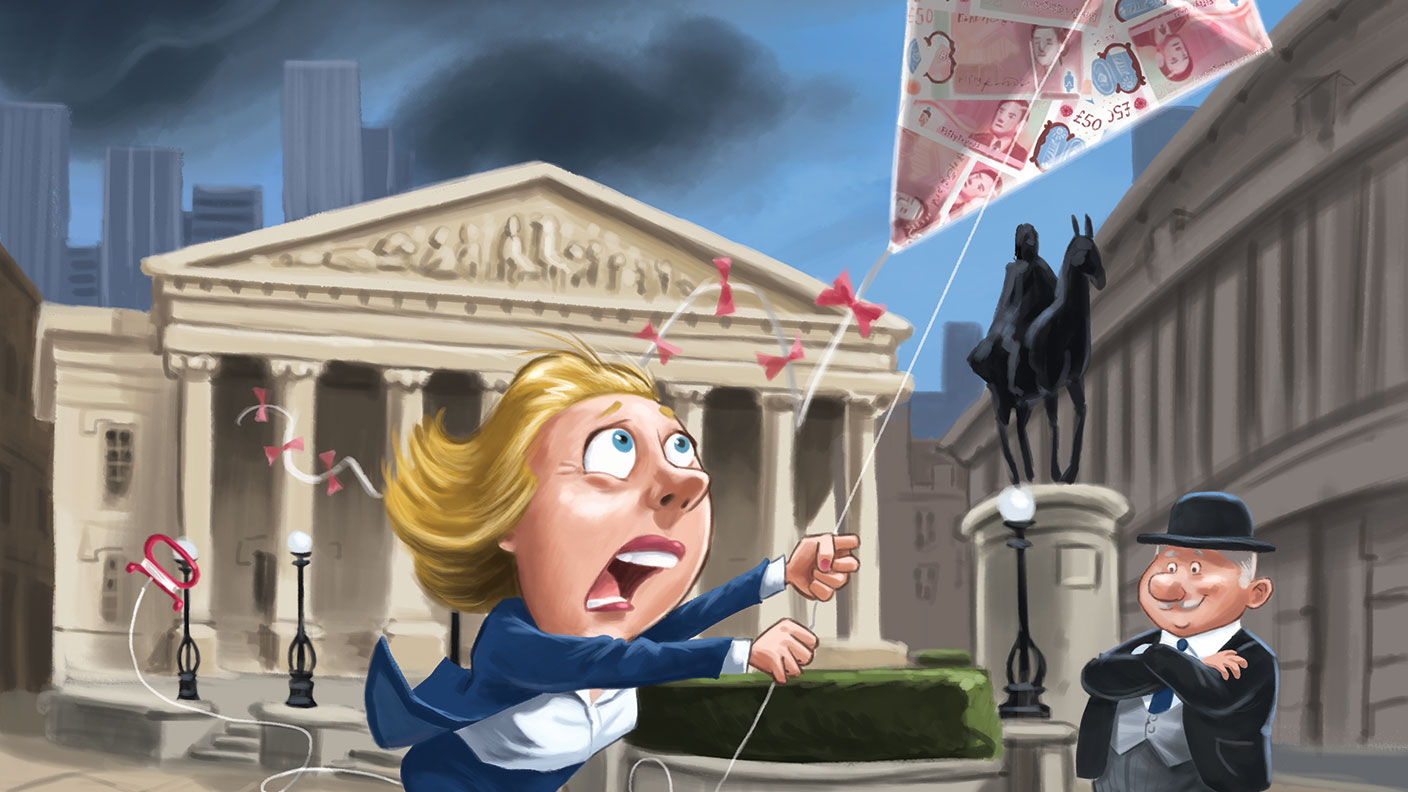Goodbye PFI: the socialist threat to infrastructure funds
Corbyn and McDonnell want to nationalise infrastructure without compensating investors. The collapse of Carillion has given them more ammunition. David Stevenson reports.

Get the latest financial news, insights and expert analysis from our award-winning MoneyWeek team, to help you understand what really matters when it comes to your finances.
You are now subscribed
Your newsletter sign-up was successful
Want to add more newsletters?

Corbyn and McDonnell want to nationalise infrastructure without compensating investors. The collapse of Carillion has given them more ammunition. David Stevenson reports.
Infrastructure funds have become hugely popular with private investors in recent years, largely for very good reasons. HICL Infrastructure (LSE: HICL) and International Public Partnerships (LSE: INPP) the longest established infrastructure funds listed on the London Stock Exchange have delivered a price return of 120% over the last decade, while churning out income yields of between 4% and 6% every year like clockwork. Given these steady returns share price volatility has also been remarkably low it's not surprising that many of the funds eventually traded at 20%-plus premiums to their net asset value (NAV the book value of their assets minus their liabilities).
Even before the political environment took a turn for the worse following the collapse of Carillion, some investors were worried that enthusiasm for the sector had got ahead of valuations. Yields had dipped perilously close to 4% even though interest rates are likely to be on the increase. But most of the market only began to get nervous when it became clear that investing in government-backed assets such as hospitals, schools and transport might not be as risk-free as had been widely assumed. Shares in these funds have dropped sharply as fears grew, with several now down by 10% or more over the past six months.
Try 6 free issues of MoneyWeek today
Get unparalleled financial insight, analysis and expert opinion you can profit from.

Sign up to Money Morning
Don't miss the latest investment and personal finances news, market analysis, plus money-saving tips with our free twice-daily newsletter
Don't miss the latest investment and personal finances news, market analysis, plus money-saving tips with our free twice-daily newsletter
The red threat
The first sign of trouble ahead came after the Labour Party Conference in late September 2017, when John McDonnell, the shadow chancellor, suggested that a future Labour government would bring existing private finance initiative (PFI) contracts back under direct public-sector control. McDonnell has also vowed to nationalise rail, water, energy and Royal Mail, with compensation likely to be paid in gilts. Subsequent news reports have suggested Labour was focusing its attack on PFI projects involving NHS trusts and local councils. Over the last couple of weeks, McDonnell has not only reiterated that he wants to nationalise some of these projects, but also said it would be "cost-free" over the long term. He subsequently said some PFI investors might not be receive full compensation.
Clearly, this could be especially bad news for HICL and the John Laing Infrastructure Fund (LSE: JLIF), where health-sector exposure is running at 30% of their portfolio. By contrast, BBGI (LSE: BBGI)(formerly known as Bilfinger Berger Global Infrastructure) has 42% exposure to transport assets (which are perhaps less likely to be the focus of left-wing anger) and 21% of the fund invested in the criminal justice system. INPPalso looked to be a more diversified bet with 37% exposure to energy infrastructure assets, although these could, arguably, be vulnerable to wholesale nationalisation in the power sector.
3i Infrastructure (LSE: 3IN), the last of the five main infrastructure trusts, has a slightly different business model: it has mostly avoided fixed-term PFI-type deals and instead mostly buys companies that own their own assets outright in sectors such as utilities and transport. This was widely assumed to make it safer from political risks, but even 3i has seen its shares fall back over the last couple of months.
| Fund | Price | NAV | Premium | Dividend | Yield |
| HICL | 146p | 148.8p | -1.9% | 7.85p | 5.4% |
| INPP | 151p | 144.7p | 4.4% | 6.82p | 4.5% |
| BBGI | 136p | 128.7p | 5.7% | 6.50p | 4.8% |
| JLIF | 118p | 119.6p | -1.3% | 6.96p | 5.9% |
| 3IN | 197p | 199.0p | -1.0% | 7.85p | 4.0% |
The impact of Carillion
Those political woes have been compounded by other events in particular, the demise of Carillion. All four of the main social infrastructure funds have reported on their exposure to the now insolvent contractor. HICL has 14% of its portfolio entangled with the firm (as facilities manager), JLIF has 8.5% (9.6% of NAV) and INPP has 3%, while BBGI did not use Carillon to manage any projects. On the plus side, all of these funds had contingency plans in place for some time, including discussions with potential replacement providers.
Arguably, the demise of Carillion shows that one of the central ideas behind privatisation works risk sharing. If key social assets are to be operated by the private sector, failure can't be seen to be rewarded, as has been the case in the Southern Rail fiasco. In Carillion's case, key business partners have been forced to step into the breach.
Set against that, though, is a fairly damning report from the National Audit Office (NAO) on the rationale, costs and benefits of PFI, which quite clearly shows that not all the ideas behind PFI have paid off to the extent that was promised (see page 12). In far too many cases the financing costs of PFI were much higher than simply providing the service via the public sector. The NAO admitted that there are benefits to PFI not least around certainty over construction costs and improved operational efficiency but the bottom line was very dismissive. If the government can borrow long term for a few per cent per annum, there are big questions why these social assets should be providing a return of 5% or more to private-sector operators.
This report probably hasn't come as a surprise to the major listed funds, given that they've long been quietly diversifying away from the steadily declining number of pure PFI projects. New models of partnerships have been emerging and most of the funds have also been further diversifying at the geographic level: INPP, for example, has pushed into energy infrastructure and transport assets, not only in the UK, but also Australia. BBGI has only a minority of its assets exposed to the UK North America is a much bigger market for this fund so it's no surprise that this fund has done better than its peers, helped along by all the talk of an infrastructure boom under the new Trump administration. On the downside, geographical diversification isn't always a positive: another problem for JLIF has been its 12% exposure to Catalan infrastructure.
State good, market bad
However, there's no getting away from the underlying tenor of the public debate public-sector provision has been rehabilitated in many voters' eyes. The devil will be in the detail of what happens next. The chance of a Labour government under Jeremy Corbyn may have dramatically increased and this poses a very real investment risk that could turn into a black-swan event. The risks of a socialist programme hasn't been fully understood. This is no slightly left-wing social-democratic programme this is proper Marxist thinking and policy analysis. No PFI or PPP (public-private partnership) assets, even in energy and transport, would necessarily be safe.
An incoming Marxist government would still have to deal with the details of how to walk away from its infrastructure contracts and this remains highly uncertain. JLIF, for example, has calculated that it might still receive 86% of the prevailing value of its UK PFI assets based on its current contract terms. HICL has suggested that "compensation would be expected to be largely equal to the prevailing value of its assets", with £2.6bn of its assets invested in PPP projects, of which £2.4bn (£1.9bn in UK projects) "comprise assets where the public-sector counterparty has either no right to voluntarily terminate, or where compensation payable would reflect prevailing market value", say analysts at stockbrokers Numis.
My own view is that, in the short term, much worse is to come for funds invested in UK-based PPP and PFI assets. We could see a more widespread backlash against privatisation and outsourcing with even liberal Conservatives backpedalling about working with the private sector. This could mean that these funds are repriced as the risky assets they always were, with discounts to NAV possibly slipping to 5% or more.
But my hunch is that the storm clouds will pass in the medium term. Even if we did get a Labour government, my guess is that its ambitious programme of renationalisation will grind to a halt, with policy makers more focused on NHS and school deals. They'll also realise that private capital will still be essential to invest in all of the new shiny socialist infrastructure projects promised by the shadow chancellor especially around renewable energy and social housing, where the outlook is much less bleak for private-sector capital.
In the meantime, investors will begin to appreciate the steady returns from these funds again. The recent interim numbers from HICL showed predictable NAV growth and improved dividend prospects. And some infrastructure funds might avoid the whole poisonous public/private debate altogether, such as 3IN. Sentiment towards thisfund has been helped by the recent news that it sold its stake in Anglian Water Group for a handsome profit (a revelation unlikely to impress many people worried about excessive utility-sector profits and leverage).
Despite all of the gloom, investors are still willing to put fresh money into the right funds and the right projects. More than a billion pounds has been raised by these funds in the last year, such as the £80m fundraising by INPP for its Australian transport assets. Most of these new placings have been raised at a 3% to 4% discount to the share price. Smart funds will shift their focus to newer spaces and more clement geographies hurting our own national infrastructure ambitions.
If you are a long-term investor, I wouldn't rush to sell, but be cagey about how much new money you invest until we have better political visibility. Still, infrastructure funds will shine again, especially when we have our next recession, in which case these high-quality assets will seem appetising again.
In MoneyWeek issue 882, I tipped HICL for one of the two income portfolios I am building, and I still consider this to be a well-established and conservatively managed fund available at a much better price than it was a few months ago.
See also: Max King looks at the safest funds for infrastructure investors.
Get the latest financial news, insights and expert analysis from our award-winning MoneyWeek team, to help you understand what really matters when it comes to your finances.

David Stevenson has been writing the Financial Times Adventurous Investor column for nearly 15 years and is also a regular columnist for Citywire.
He writes his own widely read Adventurous Investor SubStack newsletter at davidstevenson.substack.com
David has also had a successful career as a media entrepreneur setting up the big European fintech news and event outfit www.altfi.com as well as www.etfstream.com in the asset management space.
Before that, he was a founding partner in the Rocket Science Group, a successful corporate comms business.
David has also written a number of books on investing, funds, ETFs, and stock picking and is currently a non-executive director on a number of stockmarket-listed funds including Gresham House Energy Storage and the Aurora Investment Trust.
In what remains of his spare time he is a presiding justice on the Southampton magistrates bench.
-
 What do rising oil prices mean for you?
What do rising oil prices mean for you?As conflict in the Middle East sparks an increase in the price of oil, will you see petrol and energy bills go up?
-
 Rachel Reeves's Spring Statement – live analysis and commentary
Rachel Reeves's Spring Statement – live analysis and commentaryChancellor Rachel Reeves will deliver her Spring Statement on 3 March. What can we expect in the speech?
-
 Governments will sink in a world drowning in debt
Governments will sink in a world drowning in debtCover Story Rising interest rates and soaring inflation will leave many governments with unsustainable debts. Get set for a wave of sovereign defaults, says Jonathan Compton.
-
 Why Australia’s luck is set to run out
Why Australia’s luck is set to run outCover Story A low-quality election campaign in Australia has produced a government with no clear strategy. That’s bad news in an increasingly difficult geopolitical environment, says Philip Pilkington
-
 Why new technology is the future of the construction industry
Why new technology is the future of the construction industryCover Story The construction industry faces many challenges. New technologies from augmented reality and digitisation to exoskeletons and robotics can help solve them. Matthew Partridge reports.
-
 UBI which was once unthinkable is being rolled out around the world. What's going on?
UBI which was once unthinkable is being rolled out around the world. What's going on?Cover Story Universal basic income, the idea that everyone should be paid a liveable income by the state, no strings attached, was once for the birds. Now it seems it’s on the brink of being rolled out, says Stuart Watkins.
-
 Inflation is here to stay: it’s time to protect your portfolio
Inflation is here to stay: it’s time to protect your portfolioCover Story Unlike in 2008, widespread money printing and government spending are pushing up prices. Central banks can’t raise interest rates because the world can’t afford it, says John Stepek. Here’s what happens next
-
 Will Biden’s stimulus package fuel global inflation – and how can you protect your wealth?
Will Biden’s stimulus package fuel global inflation – and how can you protect your wealth?Cover Story Joe Biden’s latest stimulus package threatens to fuel inflation around the globe. What should investors do?
-
 What the race for the White House means for your money
What the race for the White House means for your moneyCover Story American voters are about to decide whether Donald Trump or Joe Biden will take the oath of office on 20 January. Matthew Partridge explains how various election scenarios could affect your portfolio.
-
 What’s worse: monopoly power or government intervention?
What’s worse: monopoly power or government intervention?Cover Story Politicians of all stripes increasingly agree with Karl Marx on one point – that monopolies are an inevitable consequence of free-market capitalism, and must be broken up. Are they right? Stuart Watkins isn’t so sure.